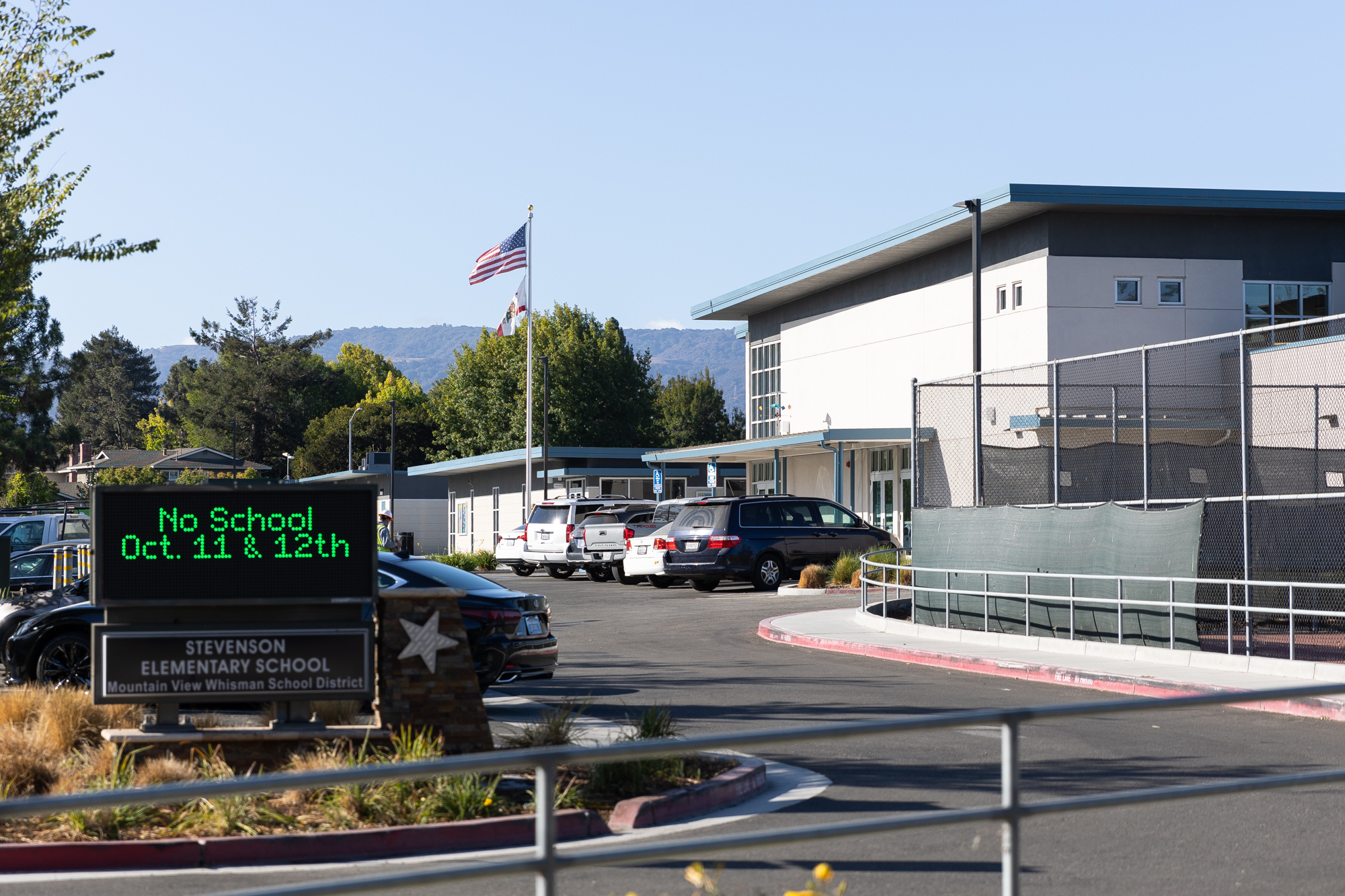This year marks the first time that students from low-income families will get a boost to their chances of getting into Stevenson Elementary School in Mountain View – and the application deadline is this Friday, Feb. 10.
The Mountain View Whisman School District's board voted unanimously last fall to implement a weighted lottery system for its choice schools in an attempt to increase the enrollment of socioeconomically disadvantaged students.
Mountain View Whisman has two choice schools: Stevenson Elementary School and Gabriela Mistral Elementary School. Both are public schools without required tuition, but rather than assigning students to the schools based on address, parents need to apply for their children to attend.
Mistral is a Spanish/English immersion school. Stevenson has a focus on parent participation, including volunteering in the classroom, although the district notes that it isn't a requirement.
The weighted lottery will only apply to Stevenson this year, because it has historically had far fewer low-income families submit applications, compared to their share of the district overall. In contrast, socioeconomically disadvantaged families haven't historically been underrepresented in Mistral's applicant pool.
The district will give extra lottery tickets to two groups of students applying to Stevenson: "socioeconomically disadvantaged" students and "relatively socioeconomically disadvantaged" students.
Being socioeconomically disadvantaged is a term defined by the California Department of Education as students whose parents did not graduate from high school or whose family income is less than 185% of the federal poverty line. That's a cap of $51,338 for a family of four this year.
To further expand access, the district created a second category, dubbed "relatively" socioeconomically disadvantaged, which encompasses those whose parents did not graduate from college or whose families earn half or less of Mountain View's median income. The district is using data from the U.S. Census Bureau's American Community Survey, which found that the median income for families with children in Mountain View was $208,761 last year, making the cut-off roughly $104,000.
Socioeconomically disadvantaged students will get four extra lottery tickets this year. Relatively socioeconomically disadvantaged students will get three extra tickets. Students from wealthier families will continue to get one ticket. Once the tickets are set, there is a random lottery for the seats.
The impact of the lottery change isn't expected to be seen all at once, but rather over time. Admission to the district's choice schools is done in priority order. Any siblings of current students and children of district staff are admitted before the broader population is considered. The district opted to keep that system in place when it implemented the weighted lottery.
Roughly one third of the open seats at Stevenson in any given year are generally taken by siblings, Superintendent Ayinde Rudolph said, though in some years it has been as high as half.
If the weighted lottery works as intended and more low-income students are admitted, their siblings would then get priority in future years, growing the impact of the new system over time.
Another reason the impacts will take time is because Stevenson also has few openings in any grades except kindergarten, Rudolph said, which means that the weighted lottery will only be able to diversify the school one grade level at a time. Stevenson has three kindergarten classes, meaning there are about 72 open seats each year, Director of Equity Megan Pohlman told the Voice.
The district typically receives far more applications for Stevenson than it has seats available. For the 2021-22 school year, 437 students applied, according to district data.
Determining how many extra tickets to give
The district determines how many extra lottery tickets to provide based on how many would be needed to make socioeconomically disadvantaged students roughly the same share of the lottery pool as they are of the district overall.
For the current lottery cycle, the district used application data from the 2021-22 school year. In that year, just 8% of Stevenson's applicant pool was socioeconomically disadvantaged, compared with 27% of the district overall. If those students had been given four extra lottery tickets, they would have made up 29% of the applicant pool. The new weighted system then gives relatively socioeconomically disadvantaged students one fewer lottery ticket, which means three extra tickets this year.
The district chose to use a prior year's data to calculate the weights, rather than waiting to see this year's applicant pool, in part so that families would know ahead of time how many extra tickets would be provided, Pohlman said. Picking ahead of time also makes running the lottery logistically easier for district staff.
The composition of this year's applicant pool will not necessarily mirror those who applied for the 2021-22 school year. If a larger portion of the pool is made up of socioeconomically disadvantaged students than in 2021-22, they will have a greater share of the lottery tickets than their 27% share of the district. If they make up a smaller share of applicants than in 2021-22, then they will get a lower share of the lottery tickets compared to the district overall.
The weighted system doesn't apply to Mistral this year because socioeconomically disadvantaged students weren't underrepresented in the 2021-22 applicant pool. In fact, roughly 50% of Mistral applicants were socioeconomically disadvantaged that year, compared to 27% of the district overall.
To find out more about the choice school admissions process and to submit an application, visit mvwsd.org/register.



Comments